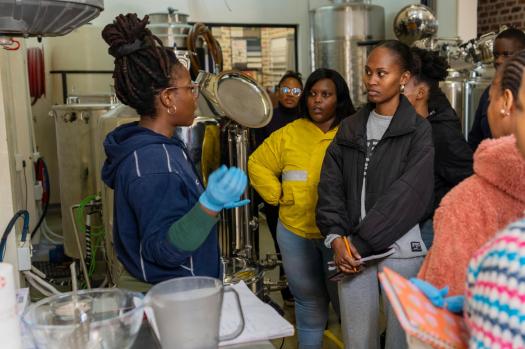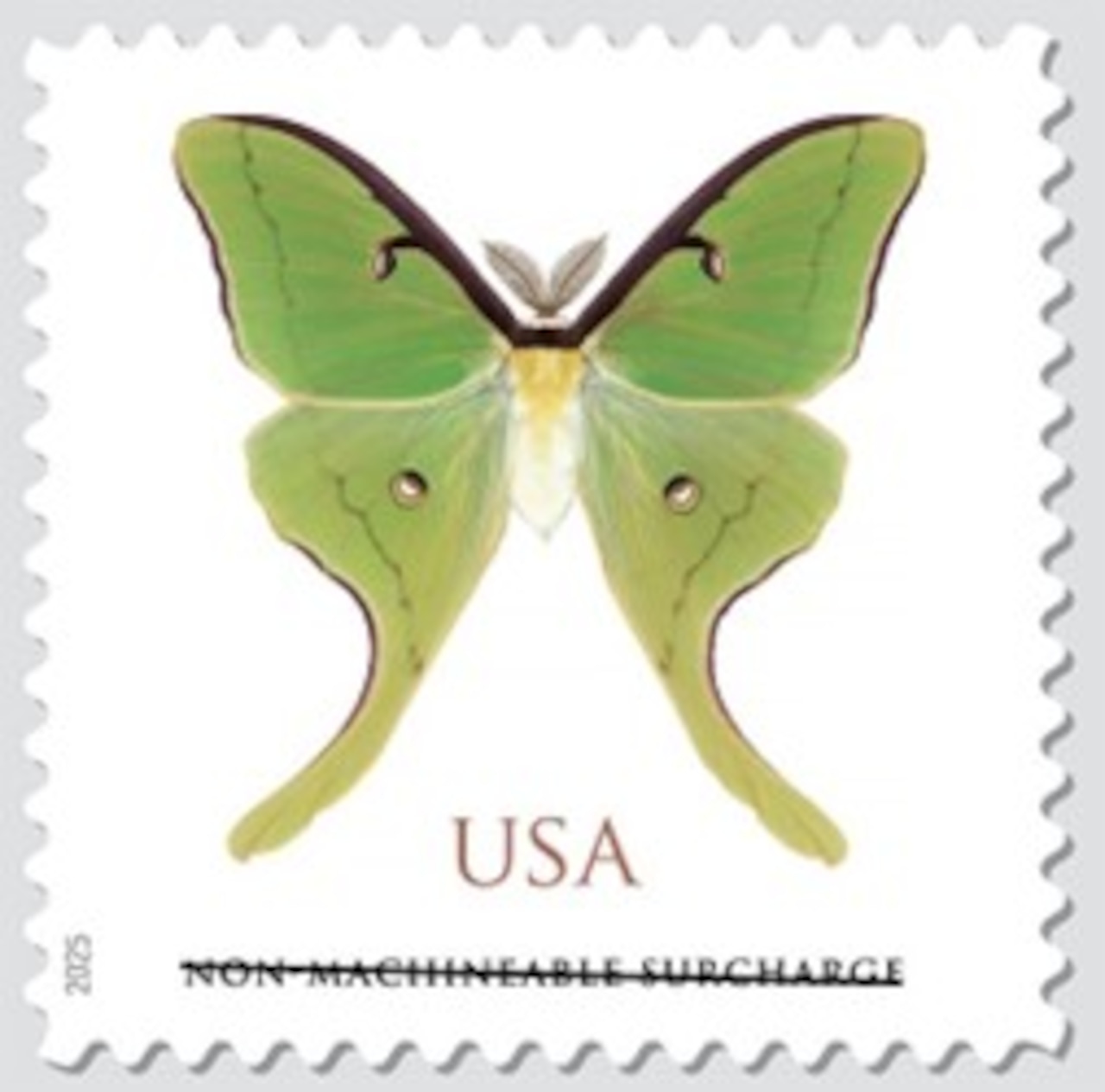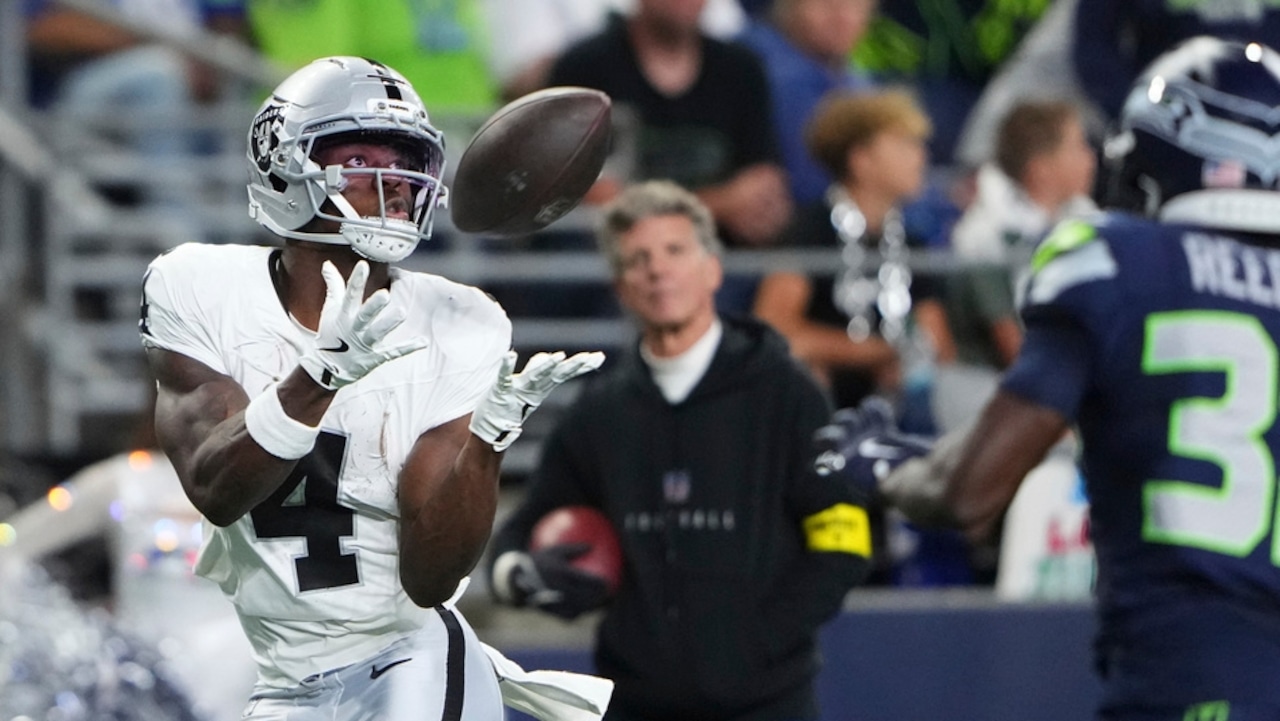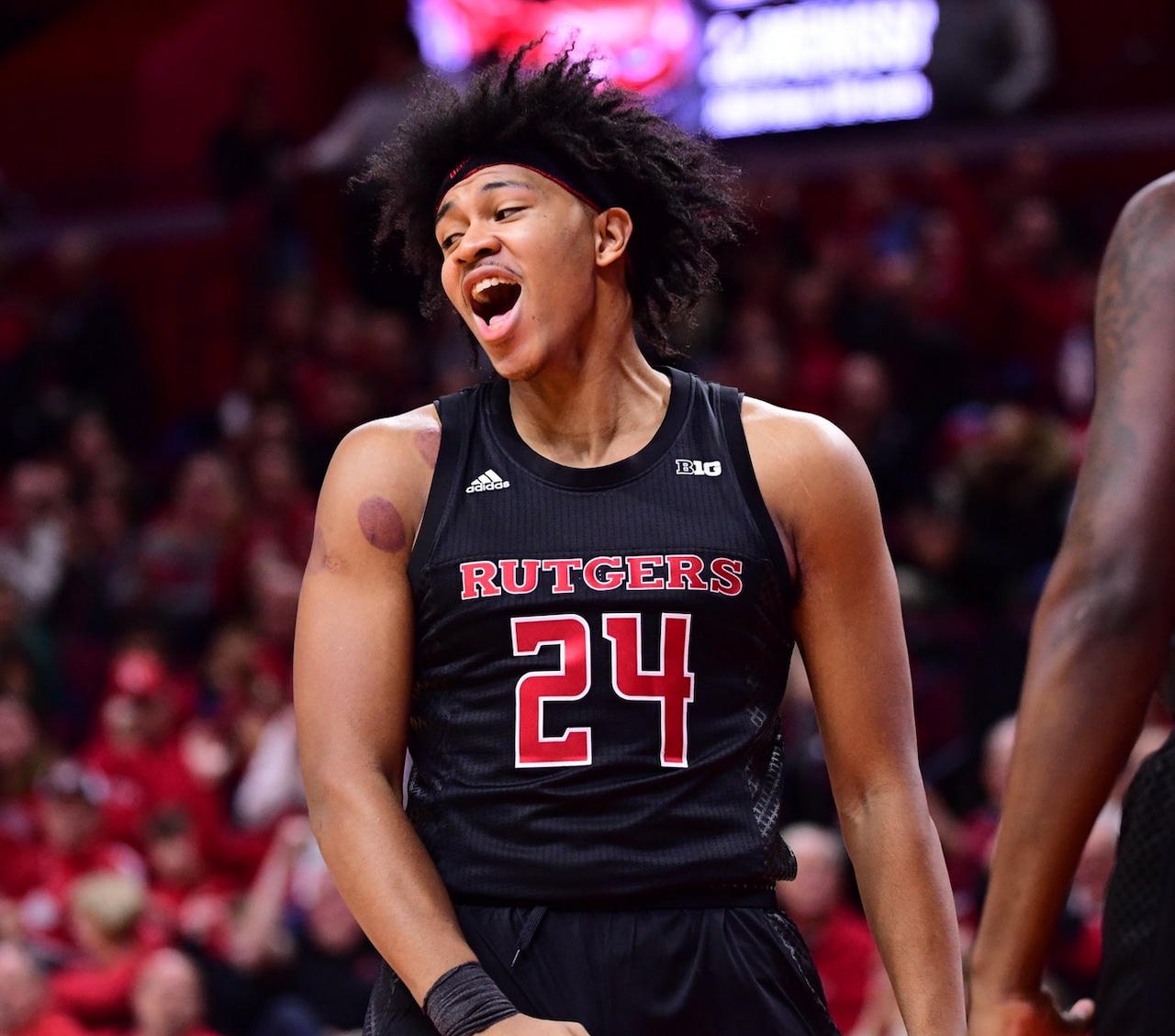Written by Michelle Gumede
JOHANNESBURG (AP)—South African beer brewing specialist Apiwe Nxusani-Mawela gives a professional nod of approval after pouring brown, gritty liquid from a massive silver tank into a flute-like container called a refractometer. Her students then enthusiastically shout their observations.
Nxusani-Mawela advises them to continuously monitor their mixture while brewing. A balance between the grains and the sugar is what we’re after.
In a world that is controlled by men and giant corporations, 41-year-old Nxusani-Mawela, a global beer judge and taster, is said to be the first Black woman in South Africa to run a craft brewery. She wants more women and Black people to have access to South Africa’s multibillion-dollar beer sector.
She is educating 13 recent Black graduates, the most of whom are women, the craft of beer making at her microbrewery in Johannesburg.
The students at the Brewsters Academy are anxious to obtain an additional qualification for a potential career in brewing, even though they already hold degrees and diplomas in analytical chemistry, chemical engineering, or biotechnology.
In order to create the ideal pale ale, the scientists spend the next six hours learning how to malt, grind, mash, lauter, boil, ferment, and filter the barley grains and water while wearing hairnets.
Lerato Banda, a 30-year-old University of South Africa student studying chemical engineering who aspires to launch her own beer or beverage company, said, “My favorite part is the mashing.” She’s talking about the method of combining hot water and crushed grains to release sugars that will subsequently ferment. It’s where everything begins, including the beer.
Classes for Nxusani-Mawela started in early June. Before spending a further six months on a work experience, students will spend six months investigating both foreign and African beer kinds.
Situated in the Johannesburg suburb of Wynberg, between the affluent financial sector of Sandton, dubbed Africa’s richest square mile, and the impoverished Black township of Alexandra, sits Nxusani-Mawela’s Tolokazi brewery.
She was originally introduced to the concept of a career in beer at a university open day in Johannesburg. She is from the little town of Butterworth, which is some 1,000 kilometers (621 miles) away. In 2007, she began brewing as a hobby. She holds a degree in microbiology and believes that anyone with a scientific background would find beer production to be an excellent career choice.
“The combination of the business side, the science, the craftsmanship, and the artistic element of brewing really captured my heart,” she added.
Related Articles
-
Boxing great Julio C sar Ch vez defends son arrested by US immigration agents
-
Daredevils run with charging bulls at Pamplona s famous San Ferm n festival
-
Trump and Netanyahu may take a victory lap on Iran, but the Gaza war looms over their meeting
-
Ukraine reports at least 11 dead and over 80 injured in Russian attacks
-
Ship attacked in the Red Sea after a bulk carrier sinking claimed by Yemen s Houthi rebels
It’s also time for a change in beer making for the mother of two boys.
“As the first Black woman to own a brewery in South Africa, I wanted to make sure that I’m not the first and the last,” she stated. For me, the goal of Brewsters Academy is to revolutionize the sector. In five or ten years, it should be commonplace for Black people to work in the sector, and I hope that this will also be true for women.
According to the most recent Oxford Economics study in Beer’s Global Economic Footprint, the beer business in South Africa generates $5.2 billion for the country’s GDP and supports over 200,000 employment. Although, like other locations, the brewing industry in South Africa is still dominated by men, efforts are being made to involve more women.
Lehlohonolo Makhethe, a 24-year-old woman attending the classes, pointed out that in certain African societies, women have traditionally been in charge of making beer. She sees mastering the craft as regaining a traditional position.
“I don’t know how it got male dominated,” Makhethe remarked. I would rather to say that, as women, we are returning to our origins and carrying on with our work.
Nxusani-Mawela is dedicated to preserving traditional African beer for the future generation, even as she teaches a variety of varieties. The 2025 African drink Cup winner was her Wild African Soul drink, which she created in partnership with Soul Barrel Brewing, a craft beer firm. It combines a fruity, bubbly Belgian Saison beer with the creamy African Umqombothi beer, which contains maize and sorghum malt.
“Everyone should know how to make umqombothi, which is our African way,” she continued, “but we don’t.” The beer styles we produce should, in my opinion, represent bringing a bit of our history into the present.
In her Tolokazi collection, she has incorporated a variety of distinctively African flavors, such as the marula fruit and the rooibos bush, which is indigenous to South Africa and is best known for its use in a well-liked caffeine-free tea.
Who would have guessed that rooibos beer existed? After tasting the beer for the first time at a beer festival, Lethabo Seipei Kekae commented. It’s really smooth. You can drink beer even if you’re not a beer drinker.













